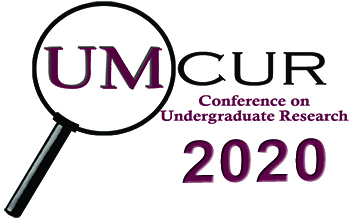Project Type
Poster
Faculty Mentor’s Full Name
Stuart Hall Ph.D.
Faculty Mentor’s Department
Psychology
Abstract / Artist's Statement
Purpose: The goal of this project is to gain a general understanding for why individuals don’t seek or delay seeking help after sustaining a concussion. We believe that this project is important for helping us to identify why people don't seek treatment while shedding light on the dark figure that exists within mental health and sports culture. We hold that the data gathered from this project will allow us to empathize and help reeducate individuals by addressing existing stigma around concussions.
Methods: Using an interactive survey on Qualtrics and the University of Montana student population, we hope to discern the reasons medical attention is delayed or never sought in addition to examining what information the public should be educated in, in order to reduce the number of under-reported injuries.
Significance: In the United States, over 750,000 head injuries each year result in hospitalization (Barrer & Ruben, 1984) and one such injury occurs every 16 seconds (Swiercinskey, Price, &Lead, 1993). The Centers for Disease Control and Prevention estimates that approximately 300,000 sports related concussions occur annually in the United States (McCrea, Hummeke, Olsen, Leo, &Guskiewicz, 2004). Concussion has gained ground as a pronounced health problem and substantial research has been dedicated to comprehending its effects. As a result, public understanding has considerably increased in recent years. Despite increased awareness, research suggests underreporting of concussion symptoms is still widespread (Asken, McCera, Clugston, Snyder, Houck, &Bauer, 2016). This study will help us shed light on why people never seek help and allow us to address stigmatizing beliefs.
Category
Humanities
The Psychological Undertones for Delayed and Non-Treatment Seeking Behavior After Concussion
Purpose: The goal of this project is to gain a general understanding for why individuals don’t seek or delay seeking help after sustaining a concussion. We believe that this project is important for helping us to identify why people don't seek treatment while shedding light on the dark figure that exists within mental health and sports culture. We hold that the data gathered from this project will allow us to empathize and help reeducate individuals by addressing existing stigma around concussions.
Methods: Using an interactive survey on Qualtrics and the University of Montana student population, we hope to discern the reasons medical attention is delayed or never sought in addition to examining what information the public should be educated in, in order to reduce the number of under-reported injuries.
Significance: In the United States, over 750,000 head injuries each year result in hospitalization (Barrer & Ruben, 1984) and one such injury occurs every 16 seconds (Swiercinskey, Price, &Lead, 1993). The Centers for Disease Control and Prevention estimates that approximately 300,000 sports related concussions occur annually in the United States (McCrea, Hummeke, Olsen, Leo, &Guskiewicz, 2004). Concussion has gained ground as a pronounced health problem and substantial research has been dedicated to comprehending its effects. As a result, public understanding has considerably increased in recent years. Despite increased awareness, research suggests underreporting of concussion symptoms is still widespread (Asken, McCera, Clugston, Snyder, Houck, &Bauer, 2016). This study will help us shed light on why people never seek help and allow us to address stigmatizing beliefs.
